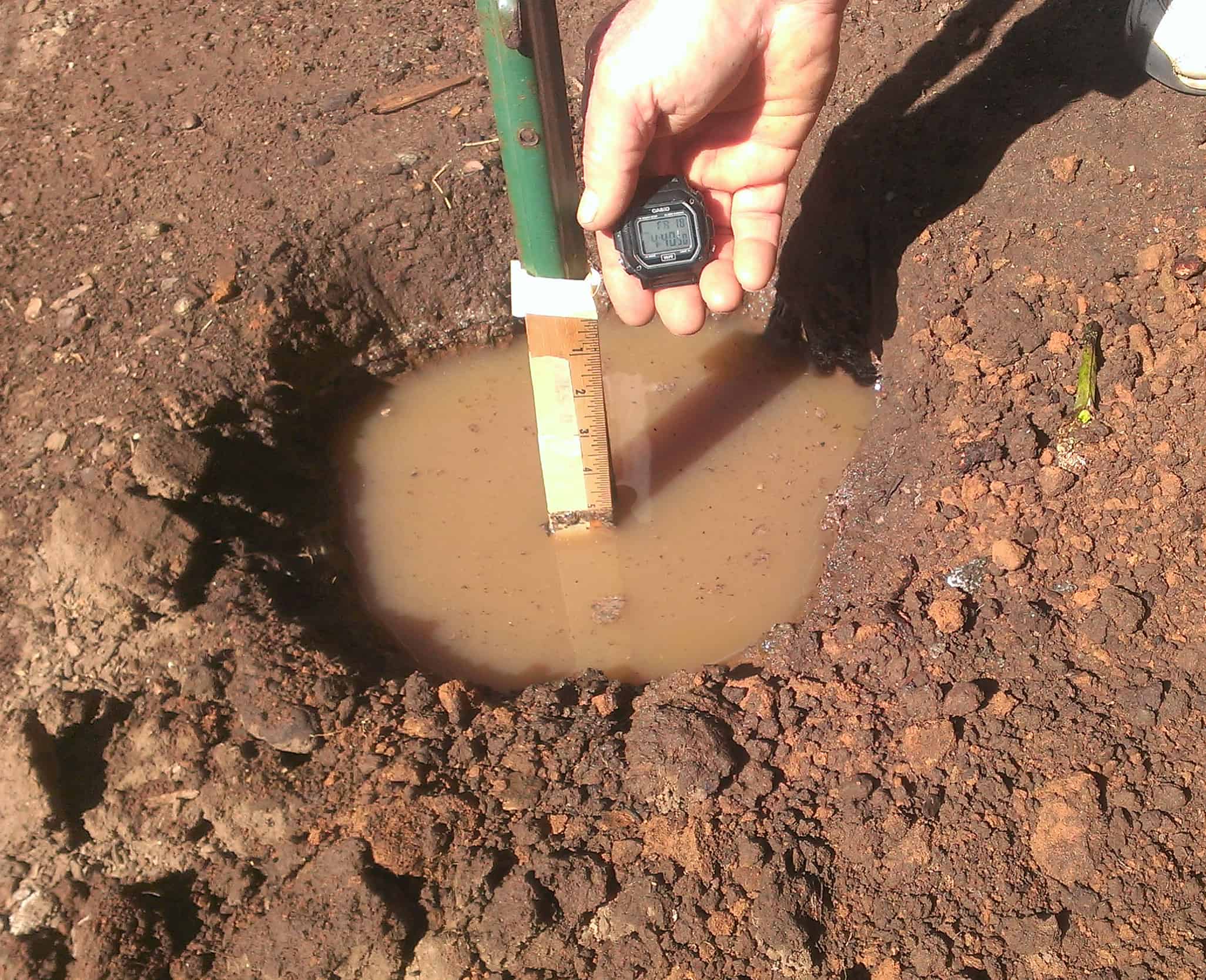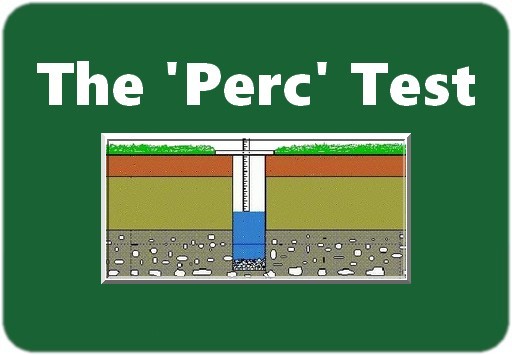Why Should I Get a 'Perc' Test Done?
Imagine this scenario: A property buyer takes the seller's word that a perc test has been done and that the land is buildable. However, the percolation test had not been performed and the buyer then has to test the property themselves. The land fails the absorption test serveral times, has no access to a local sewer system, and the purchased land is deamed unusable, with a regular tax bill to boot.

So What is a Perc Test?
A perc test is conducted by drilling or digging holes in the ground, pouring water into the holes and then observing the rate at which the water is absorbed into the soil.
A percolation test determines the soil's ability to absorb fluids for the installation of a septic system. A septic system uses a tank to collect a home's wastewater and solids where it breaks down through an enzymatic process. The fluid flows from the tank through the pipe that leads to a series of perforated pipes buried a few inches below the surface of the ground called a septic drain field or leach field.
When Do You Need a Perc Test?
If you are buying or selling a house or buying property that doesn’t have a building already on it, it is always good practice to have a percolation test, or perc test. The perc test only needs to be done on property that does not have access to a municipal sewer system, as the primary reason for a perc test is getting a septic system installed. The perc test is a soil evaluation that tests the rate at which water drains through soil. This will determine what type of a septic drain field or leach field is needed.
Some homes may have a cesspool that is no longer acceptable by local governing ordinances. If this cesspool needs to be replaced by a septic tank, a perc test will be needed as well.
Particularly when buying acreage or a parcel of land without structures on it, it is in your best interests to have this done. Otherwise, the property purchased may be only useable as farmland or recreational. Having a perc test done also increases the resale value.
What is a Good Perc Rate for a Septic System?
Test holes that drain at a rate below five minutes per inch, greater than 30 minutes per inch in a deep trench or longer than 60 minutes per inch, require a special septic system designed for the soil's percolation.
Can Anyone Do a Perc Test?
Depending on where you live, you may require a septic specialist to attain the permit for and cerify the perc test. While you can drill your own holes to determine the absorption rate, it will be unusable for obtaining a Septic Permit. Tric-County Septic LLC regularly performs and certifies these tests for homeowners and businesses throughout Northwest New Jersey. Call Tri-County Septic today: 908-689-9088.
What Happens if My Property Fails the Perc Test?
If the property fails, the perc test there are a few options. One option is retesting in different parts of the property, as well during a different season, or by adding a raised sand bed to overcome the drainage issue, if the health department is agreeable. Another option is looking at an engineered system.
